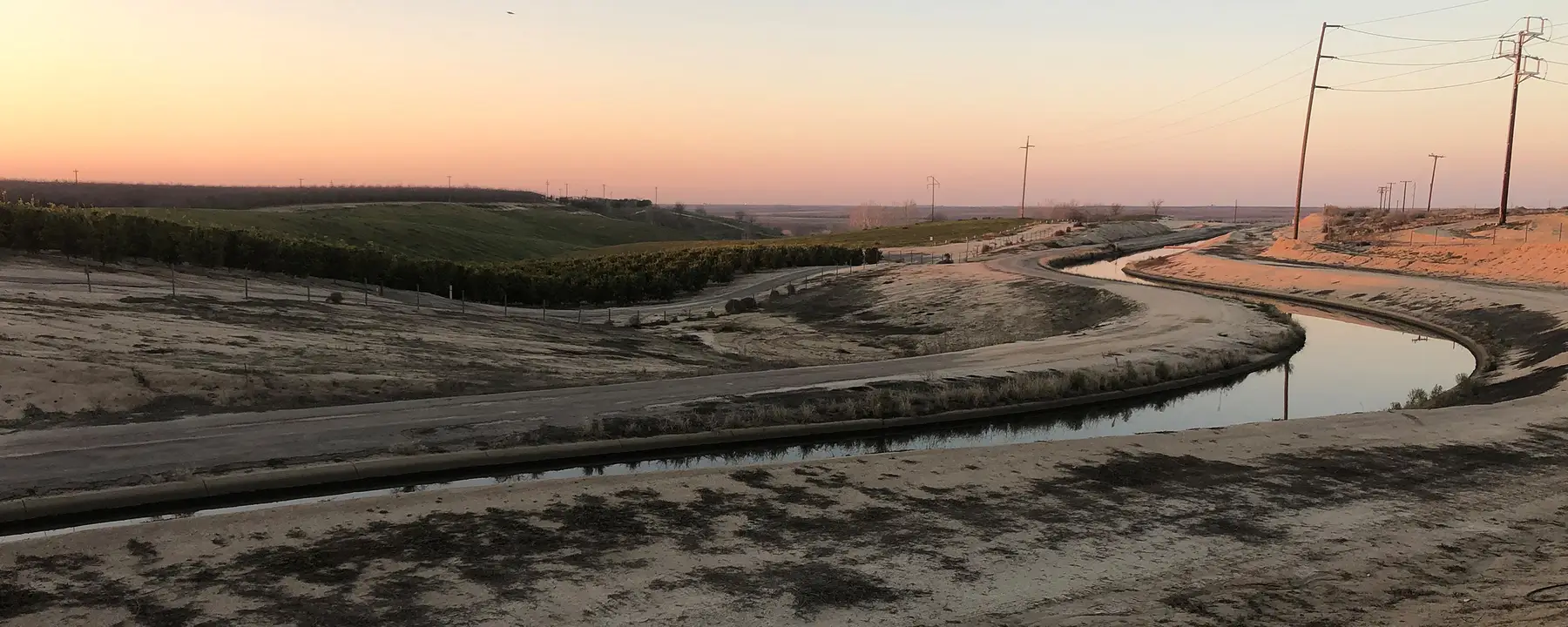Experts and stakeholders join forces to find solutions to frequent water shortages in California's Central Valley agricultural region
Agriculture and oil are two of the biggest industries in Kern County, and one major place they intersect is water. At an event on the California State University Bakersfield (CSUB) campus, local and visiting scientists waded deep into the topic of oilfield-produced water and crops.
The “Alternative Irrigation Water Workshop,” held Feb. 7, 2020, was a joint effort by CSUB, Duke University, RTI International and Pacific Institute.
“Coming to CSUB, I saw the opportunity to start working on water treatment technologies for produced water from oilfields,” said Dr. Luis Cabrales, an associate professor of engineering at CSUB. “In conversations with local agencies and industry, the topic of produced water was always coming up. I felt that at CSUB we could start participating in the conversation around this topic.”
The workshop was part of the education and extension activities included in the last year of a three-year grant funded by the United States Department of Agriculture National Institute for Food and Agriculture. In it, scientists evaluated the use of oilfield-produced water (or OPW) on crop and human health, as well as how to use this water safely and efficiently.
CSUB’s involvement in the project started when several faculty members were interested in obtaining funding from USDA to research produced water, Dr. Cabrales said. The team was contacted by Jennifer Hoponick Redmon from RTI International to discuss partnering on a grant proposal with Duke University and Pacific Institute to evaluate produced water in California’s Central Valley.
The grant’s lead project director is Dr. Avner Vengosh, a professor of water quality and geochemistry at Duke University. At the workshop, he gave a presentation on his assessments of the inorganic water quality, potential soil and crop impacts, and accumulation of trace metals in pistachios from using oilfield-produced water for crop irrigation in the Cawelo Water District.
“We wanted to know, first, what is the water quality that is used for irrigation, and then understand what happened to the soil,” Dr. Vengosh said. “Is there any risk? The objective is to evaluate what’s in the water and how it affects the soil’s chemistry and possibly also the risk of metals accumulation in the agriculture products.”
The team’s research found that using this water can be sustainable for crop health, but keeping the water diluted and its salinity low is key. Having even a slightly higher level of salinity can negatively impact the health of the soil and the plants that grow there.
Throughout his research, Dr. Vengosh has worked closely with Dr. Cabrales and his team at CSUB. With a local perspective on the issue, the Bakersfield scientists were able to help the others connect with farmers, which Dr. Vengosh said was “instrumental in taking theoretical ideas and implementing them in the field.”
Another co-project investigator is Jennifer Hoponick Redmon, a co-Project Director at RTI International. At the conference, she discussed the methods and findings of the probabilistic human health risk assessment completed that evaluated trace metals exposure associated with the use of OPW for crop irrigation in the Central Valley.
Hoponick Redmon explained that with the study’s data and publicly available data on inorganic chemicals including metals, they estimated the likelihood of developing non-cancer health effects or cancer from eating foods grown with oilfield-produced water.
“Our preliminary findings show that in general, the oilfield water we tested does not have extremely high levels of inorganic contaminants,” she said. “Out of the compounds we studied, boron is potentially concerning for crop health in select cases, while arsenic is most closely linked to human health concern for adults eating a large amount of foods irrigated with oilfield-produced water over long periods.
Overall, our results suggest that there are best management practices that can be used to optimize the safe and sustainable use of oilfield-produced water in the Central Valley now and in the future.”
The workshop was geared toward stakeholders in the oil and agriculture industries, academia, government agencies, nonprofits, and water districts, as well as students. Together, experts from different areas can come up with creative solutions to the frequent water shortages in the Valley, a region whose agriculture feeds the country.
“There are very famous world-class scientists,” Dr. Cabrales said of the team. “Others are environmental scientists, policy makers, and engineers who will talk about how to treat produced water, how we could benefit from finding industrial and agricultural reuse for this valuable asset of the region.”
Years of drought have inspired researchers from different disciplines to look for creative solutions for agriculture’s water needs.
“We are interested in helping to build resiliency in the food-energy-water nexus in California,” Hoponick Redmon said, explaining that integrating all those factors would provide a “holistic perspective” on the future use of OPW.
“In the end, we are talking about finding the economical and sustainable way to increase the reuse of produced water in agriculture,” Dr. Cabrales said. “This could lead to an increase in crop production, or at least to maintain the level of production, with several challenges on this region such as climate change and changes in regulation of groundwater.”
- U.S. Department of Agriculture (USDA)
- Duke University
- California State University Bakersfield
- Pacific Institute



